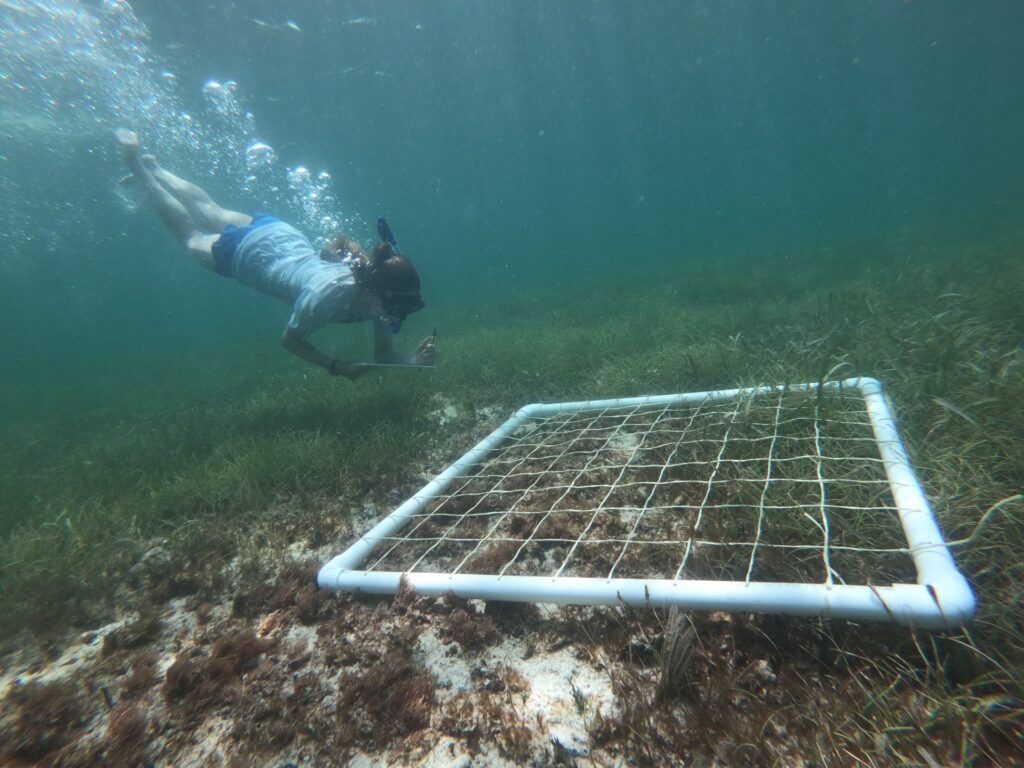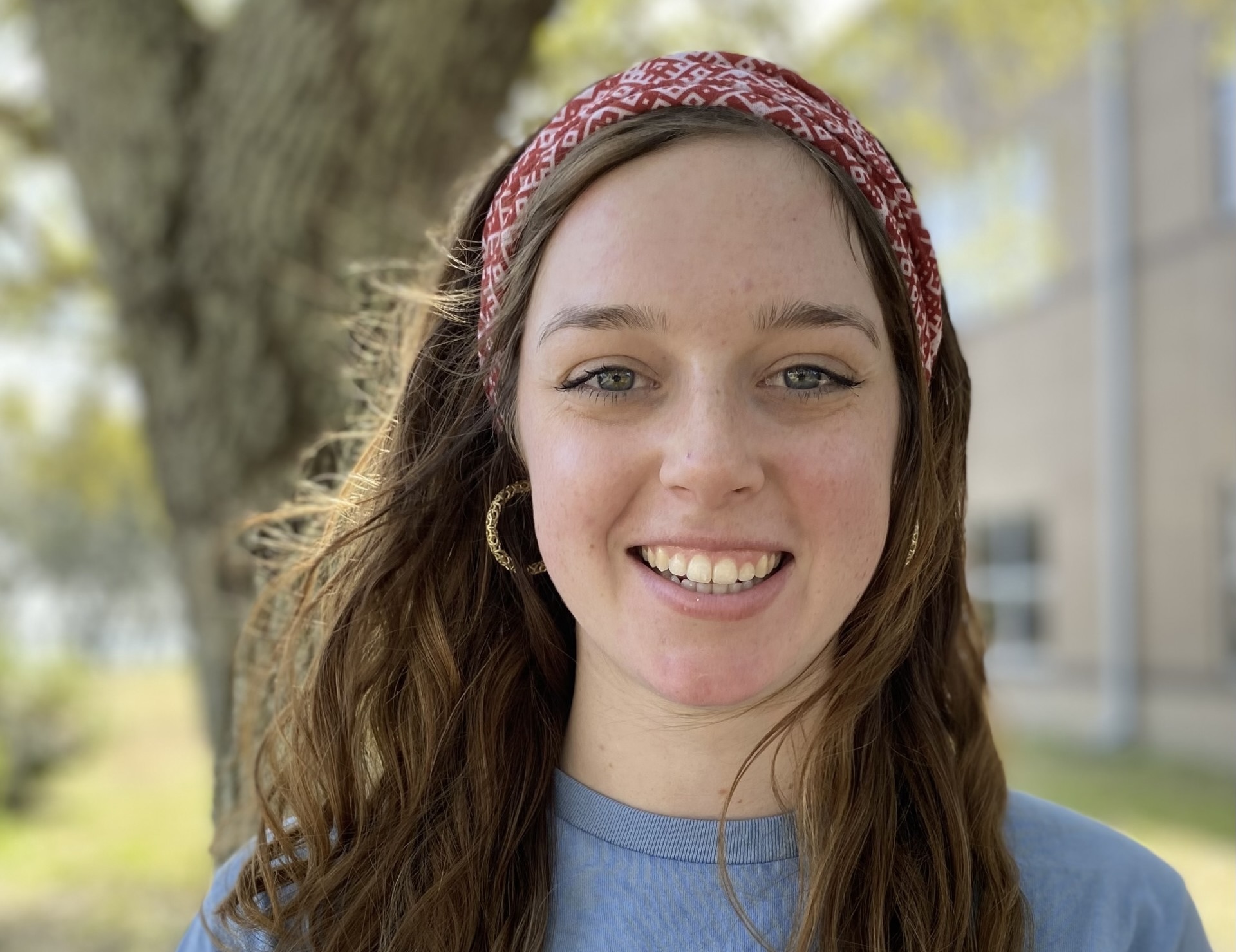For immediate release
Contact: Aman Kohli, akkohli@ncsu.edu
or Tim Ellis, tim.ellis@apnep.org
Madeline Payne, a Ph.D. student in the University of North Carolina at Chapel Hill’s Environment, Ecology, and Energy Program, is the recipient of the 2025 joint fellowship from North Carolina Sea Grant and the Albemarle-Pamlico National Estuary Partnership. Payne will investigate how changing coastal landscapes affect seagrasses’ role in aquatic ecosystems.
“Madeline’s work will fill a knowledge gap about what is going on at the deepwater edge of our subaquatic vegetation habitats,” says John Fear, North Carolina Sea Grant’s deputy director.
Seagrasses provide a wide range of ecosystem services, including erosion control, carbon sequestration, and maintenance of fisheries, which factors like sea-level rise impact. Payne’s project will use remote sensing and spatial analysis to understand how seagrasses respond to these shifting factors so researchers can better anticipate changes to the benefits that seagrasses provide.
“By understanding the impacts of inlet widening, hurricanes, and water clarity on seagrasses, this research will be critical for enhancing the resilience of these vital coastal ecosystems,” says Aman Kohli, North Carolina Sea Grant’s research and program coordinator.

The joint fellowship, now in its ninth year, supports graduate students from institutions based in North Carolina who conduct applied research within North Carolina’s portion of the APNEP region. That region covers most of the Albemarle-Pamlico watershed, including the Neuse, Tar-Pamlico, Pasquotank, Chowan, lower Roanoke river basins, as well as parts of the White Oak river basin.
“North Carolina has the most seagrass of anywhere along the Atlantic coast, but this ecologically and economically important estuarine resource is declining,” says Tim Ellis, APNEP’s quantitative ecologist. “Projects like Payne’s will improve current conservation and management strategies.”
Joel Fodrie, an estuarine ecologist at UNC, will serve as Payne’s faculty advisor for her research.
Payne is currently North Carolina Sea Grant’s 2024-2025 Hook, Line & Science Communication Fellow, where she works alongside fisheries specialists to communicate research to anglers and others through NC Sea Grant’s award-winning Hook, Line & Science series. In 2024, she won first place in the NC Coastal Conference’s lightning talks.
Read more about this and other Sea Grant fellowships and funding opportunities.



